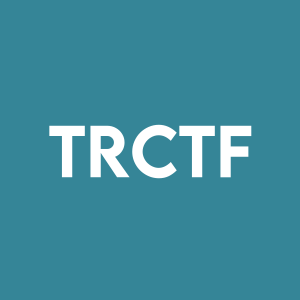Traction Uranium Executes Service Agreement with University of Saskatchewan Research Team to Utilize Innovative Uranium Vectoring Technique using Radiation-Induced Defects in Quartz
Traction Uranium Corp. (CSE: TRAC, OTC: TRCTF) has signed a master service agreement with the University of Saskatchewan to enhance exploration efforts at its Hearty Bay and Lazy Edward Bay projects in Saskatchewan. CEO Lester Esteban emphasized the province's strengths in mining and the innovative techniques developed by the University to identify uranium-bearing fluids. The collaboration will utilize radiation-induced defects in quartz to guide future drilling programs, aiming for a more cost-effective and accurate exploration strategy.
- Collaboration with University of Saskatchewan enhances exploration strategy.
- Utilization of innovative techniques to identify uranium resources.
- Focus on cost-effective drilling programs through advanced research.
- None.
Insights
Analyzing...
VANCOUVER, British Columbia, July 06, 2022 (GLOBE NEWSWIRE) -- Traction Uranium Corp. (the “Company” or “Traction”) (CSE: TRAC) (OTC: TRCTF) (FRA: Z1K), a mineral exploration issuer focusing on the development of discovery prospects in Canada, including its two flagship uranium projects in the world-renowned Athabasca Region, is pleased to announce execution of a master service agreement with the University of Saskatchewan to add to the Companies exploration programs at both Hearty Bay and Lazy Edward Bay.
Lester Esteban, Chief Executive Officer, stated “The Saskatchewan expertise in mining and uranium is what makes this province one of the best rated jurisdictions for mining and exploration. The innovation coming out of the University of Saskatchewan elevates the industry, the novel technique pioneered by Dr. Yuanming Pan will assist us in determining whether a target area had uranium-bearing fluids or not and help our team define and trace the conduit(s) of uranium-bearing fluids. The data derived from the work will assist us in returning a more cost effective and higher accuracy drilling program over our peers by examining quartz degradation caused by radiation emitted from decaying uranium as another vector to our program. By focusing our efforts in the right areas and combining this new technology with the data gathered from our drilling programs, we maximize the dollars in the ground for our investors.”
Technical Overview:
The intended research collaboration between the University of Saskatchewan and Traction Uranium Corp will make use of radiation-induced defects in quartz as a new vector for uranium exploration at the Hearty Bay and Lazy Edward Bay property in northern Saskatchewan. This research is based on the discovery of some radiation-induced defects in quartz formed from the bombardment of alpha particles emitted from the decay of uranium (and thorium) isotopes. Therefore, the amounts of these radiation-induced defects in quartz often record the quantity/duration of uranium-bearing fluids that existed in that area in the past.
This method started from research on the Key Lake and McArthur River mines and has been applied to the Maw Zone, the Phoenix Deposit, and the Arrow Deposit.
The main analytical techniques used for this research are cathodoluminescence (CL) imaging and electron paramagnetic resonance (EPR) spectroscopy. The former technique visually detects radiation-induced defects in minerals but is less sensitive, while the latter is more sensitive and allows quantitative estimations of radiation-induced defects.
The program will start with a systematic sampling of the Hearty Bay and Lazy Edward Bay property and is followed by careful sample preparations and data analyses (polished thin sections for CL imaging and mineral separates for EPR). The anticipated results from this research are in the form of a detailed documentation on the distribution (both 2D and 3D) of radiation-induced defects in quartz at both properties, which can be integrated with data from other techniques (e.g. geophysics and geochemistry) to guide the exploration program (i.e., narrowing down targets for further exploration).
About Traction Uranium Corp.
Traction Uranium (CSE: TRAC) (OTC: TRCTF) (FRA: Z1K) is in the business of mineral exploration and the development of discovery prospects in Canada, including its two flagship uranium projects in the world-renowned Athabasca Region.
We invite you to find out more about our exploration-stage activities across Canada’s Western region at www.tractionuranium.com.
On Behalf of the Board of Directors
Lester Esteban
Chief Executive Officer
+1 (604) 561 2687
info@tractionuranium.com
Disclaimer for Forward-Looking Information
This news release contains certain forward-looking statements within the meaning of applicable securities laws. All statements that are not historical facts, including without limitation, statements regarding future estimates, plans, programs, forecasts, projections, objectives, assumptions, expectations or beliefs of future performance, including statements regarding the expected use of proceeds from the Private Placement are “forward-looking statements”. These forward-looking statements reflect the expectations or beliefs of management of the Company based on information currently available to it. Forward-looking statements are subject to a number of risks and uncertainties, including those detailed from time to time in filings made by the Company with securities regulatory authorities, which may cause actual outcomes to differ materially from those discussed in the forward-looking statements. These factors should be considered carefully and readers are cautioned not to place undue reliance on such forward-looking statements. The forward-looking statements and information contained in this news release are made as of the date hereof and the Company undertakes no obligation to update publicly or revise any forward-looking statements or information, whether as a result of new information, future events or otherwise, unless so required by applicable securities laws.








